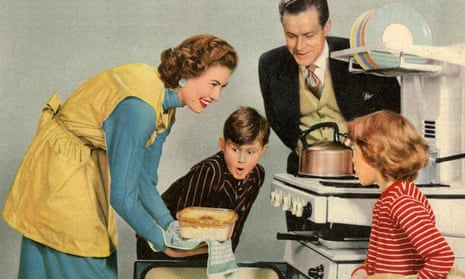Picture a millennial. Her tastes, like her emotional problems, are oddly specific. She likes squishy pillows because they soothe her anxiety. She likes curvy fonts for this reason, too, and baby cacti. She can’t have a real baby because she is too poor. She can’t find a partner because she is too alienated. Perhaps she has a fish. She is locked in an Oedipal battle with the boomers, her parents, who told her she would inherit the Earth but sucked it dry.
Like the “teenager”, who emerged in post-depression America, in part as a marketing tool that recognised the spending power of adolescents, the “millennial” is largely a work of fiction. Rationally, ascribing similar socioeconomic circumstances to the roughly 1.8 billion people born between 1981 and 1996 makes no sense. Not all millennials are unable to afford to have a child, just as not all boomers are smugly retired (indeed, in the UK 1.9 million people over the age of 65 live in poverty, according to figures from the Department of Work and Pensions).
But to say a generational stereotype is reductive risks missing the point of its appeal. The lure of distinguishing between a “Gen X-er” and a “millennial” is precisely that it is a simplification. It substitutes the terrifying work of trying to really understand yourself or anyone around you for something much easier: everything can be explained in terms of whether you were born in 1979 or 1981.
The appetite for this kind of categorisation is reminiscent of the thrill of personality quizzes. Working out whether you are an “introvert”, or an “empath”, or whether you are “good-girl hot” or “bad-girl hot”, is satisfying because it suggests that who you are can be known and quantified. That all the things you did that felt puzzling or unpredictable at the time actually had an inevitability about them: you have always been “bad-girl hot”; you were fated to be this way. Explaining your character traits – particularly the bad ones – in terms of a generational stereotype offers a similar comfort. I gobble up think pieces about the millennial and measure myself against her: I, too, enjoy soft furnishings and baby plants and taking antidepressants. So perhaps I don’t have any control over these things. This powerlessness allows me to feel, deliciously, sorry for myself. I am the victim of my generation’s uniquely precarious circumstances. I was born in 1992.
Of course, this blanket status obscures the massive inequalities that exist between millennials. Recent data from the Institute for Fiscal Studies predicts that one in four people born in the 1980s will inherit wealth from their parents of about £300,000 (more than 10 times the average annual earnings for their generation). Peter Kenway of the New Policy Institute tells me the asset distribution between millennials will become so unequal that we may enter a “Jane Austen-style marriage market, as millennials without an inheritance try to partner up with millennials who stand to inherit a house”.
No matter how insulated you are from real hardship, it is possible to see certain elements of your life in the broad strokes we use to sketch the millennial condition. As the writer Rachel Connolly has pointed out, if you have ever paid rent, you can claim you are “Generation Rent”, irrespective of what you stand to inherit; likewise if you have ever experienced anxiety, your life is “precarious”. Like the language of a personality quiz category or horoscope, these terms are vague enough to invite easy identification but too vague to be meaningful.
Similarly, the language we use to distinguish between generations is slippery. Millennials were named Generation Me by the psychologist Jean M Twenge in 2006, but an almost identical term – “me generation” – was coined in 1976 to describe the baby boomers. Many of the millennial’s least attractive quirks – an interest in self-help, self-obsession, tarot, therapy – were originally boomer traits. Terrible loneliness, which I understood to be the millennial’s special affliction, is now being attributed to Gen Z, who, according to the New Yorker, are the “loneliest generation”.
The same epithets are recycled, but we have a habit of describing each new generation as though it will be the last: the most selfish, the most isolated, the most depressed. There is something apathy-inducing about this impulse to think of one’s generation, and the generation below you, as doomed. If we are all going to hell in a handcart, what’s the point of doing anything to stop it. Conveniently, it’s too late.
Life is difficult because it is practically impossible to know, or be known, by anyone. Predetermined characteristics offer some kind of pattern for explaining inconsistency. Humans have been trying to deal with this problem since at least 400BC, when Hippocrates divided peoples’ temperaments according to which “humour” predominated in their bodies: black bile, yellow bile, phlegm, blood. The generational stereotype is a relatively modern solution to an ancient problem; it provides a helpful scaffold for your personality, allowing you to feel individual but at the same time comfortingly typical. You bear no responsibility for the more unsavoury aspects of your character. You are a product of your time.
Cambridge Analytica, it has been shown, harvested the data of millions of people by inviting them to take a personality quiz. There is something sad, and relatable, about this: people giving so much of their data away in the hope of finding out who they are. The millennial stereotype requires a similar tradeoff, a similar flattening of identity. Why bother trying to change? Buy a squishy pillow instead.
Kitty Drake is a writer and editor based in London
